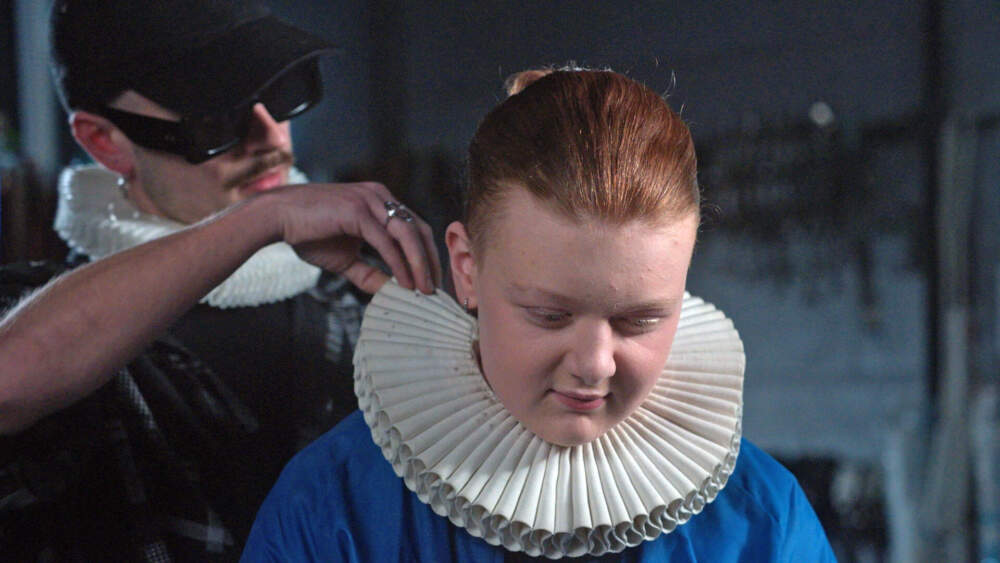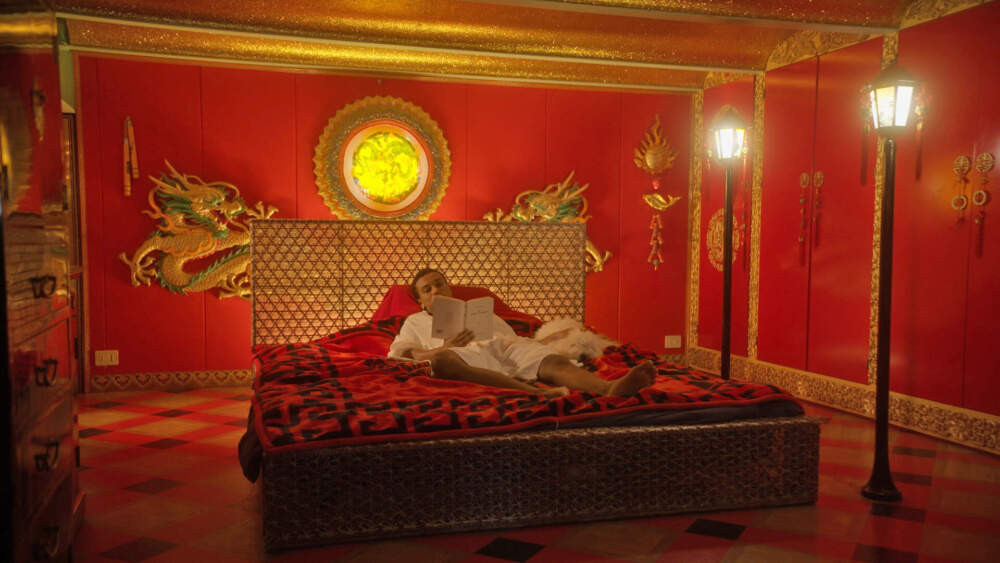Advertisement
Review
Documentary hybrid 'Orlando, My Political Biography' tears down boundaries

“F---ing Virginia Woolf wrote my biography in 1928,” announces filmmaker Paul B. Preciado in the opening moments of his excitingly knotty documentary hybrid “Orlando, My Political Biography.” He then immediately and rather sheepishly apologizes to the late English author for his profanity, explaining that he used it in a spirit of “tenderness and admiration, because your writing seemed impossible to surpass.”
A lot of Preciado’s narration during the dizzying, unquantifiable film that follows takes the form of a fan letter to Woolf, whose similarly slippery “Orlando: A Biography” is the tale of an Elizabethan aristocrat who swaps genders mid-story and lives for hundreds of years. Many have called it the first trans novel, though such terminology obviously didn’t exist 95 years ago when it was first published. Preciado uses Woolf’s book as the jumping-off point for a movie that’s both a dramatization of “Orlando” and a deconstruction of the text. It’s partially a personal essay but most importantly a manifesto obsessed with tearing down boundaries in both form and content. It’s also really fun to watch.
A Spanish-born academic and activist who studied philosophy with Michel Foucault, Preciado has little patience for documentary conventions and, as a tip of the hat, begins the film with provocative questions that appear in the big, blocky font favored by Jean-Luc Godard in the 1960s. He’s cast more than 20 trans and nonbinary actors to play the part of Woolf’s shape-shifting Orlando, each introducing themselves at the start of their scenes and weaving autobiographical anecdotes and asides into their lines. Most wear their own contemporary street clothes plus an Elizabethan ruff, and it’s beguiling spending time with these people, both in and out of character. Preciado obviously can’t afford to mount a period adaptation — and probably wouldn’t be interested in one, anyway — so his performers are often photographed on soundstage sets in front of painted backdrops, while stagehands and technicians mill about in the periphery.

So many movies featuring transgender characters tend to emphasize trauma and abuse, it’s heartening to see one so full of joy as “Orlando, My Political Biography.” We meet young people who are beaming as they tell us about the benefits of their puberty blockers and top surgeries, conveying the thrill of being able to create their own identities instead of being imprisoned by gender expectations. My favorite is a 15-year-old describing how he spent the first year of his transition scowling at everyone, rolling his shoulders when he walked because he thought that’s what boys were supposed to do. But his face lights up when he talks about discovering a different kind of masculinity, one gentler and truer to himself. The film is about that kind of liberation from society’s stupidly arbitrary demands. To Preciado, gender roles are “political fictions enforced by repetition and violence,” which is why the picture itself so flagrantly defies any genre categorizations. He’s trying to make a nonbinary movie.
Heck, at one point it’s even a musical. While a pink-haired Orlando finds herself subject to brusque and intrusive questions from a disapproving doctor – he’s flummoxed when his patient says she’s proud to have “a female penis” — a lobby full of other Orlandos all swap hormone prescriptions and tips for how to work around the doctor’s prejudices and blind spots. The whole office soon explodes into song, complete with a bearded, disco-dancing diva belting out a number called “Pharmacoliberation.”

As one might imagine, not all of Preciado’s gambits come off as well as others. I did get a big kick out of the modern slang occasionally slipping into Woolf’s text, the way Gus Van Sant updated the Shakespearean soliloquies of “My Own Private Idaho” with dirty, street hustler lingo. (Indeed, this film has more of the anything-goes energy of Van Sant’s extremely loose 1991 “Henry IV” riff than Sally Potter’s tonier, Tilda Swinton-starring “Orlando” adaption from the following year.) But his timing sometimes fails him, as in an overlong sequence in which pictures of contemporary trans people are sewn into the pages of Woolf’s book by surgeons on an operating table — a quick cutaway gag that stretches out for an entire scene.
There’s some nifty newsreel footage of Christine Jorgensen, who in the early 1950s became the first American famous for undergoing gender affirming surgery. We also see too little for my tastes of the French showgirl and ‘60s media sensation Coccinelle, but then Preciado is hardly interested in making a straight historical documentary. “Orlando, My Political Biography” is more like an argument, advocating for the abolition of binary gender roles altogether and replacing them with the apparently radical concept of minding your own business and letting people be whoever they want to be. I mean, “f---ing Virginia Woolf” got there almost a hundred years ago. It’s about time we caught up.
“Orlando, My Political Biography” runs at the Brattle Theatre from Friday, Dec. 8 through Thursday, Dec. 14.
